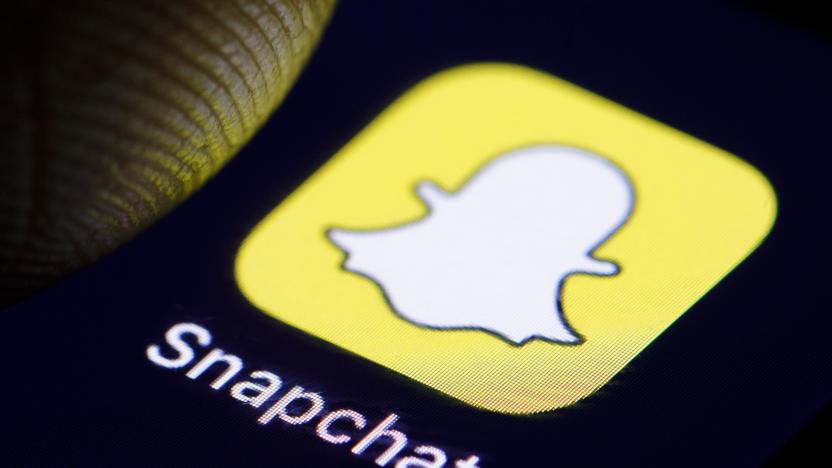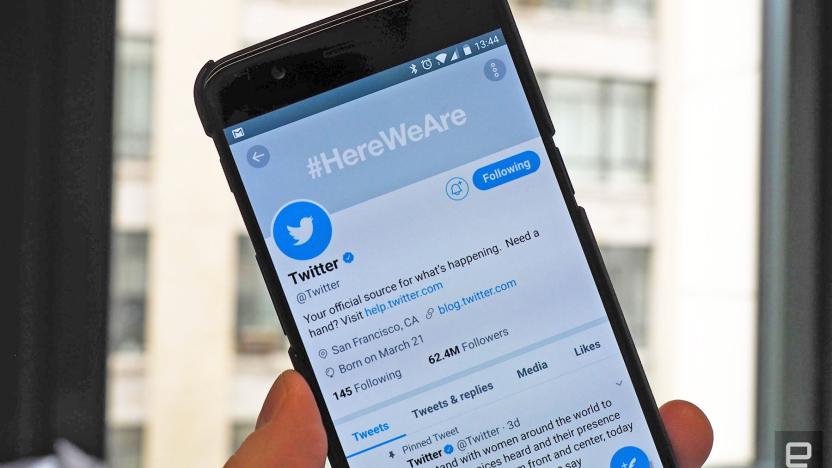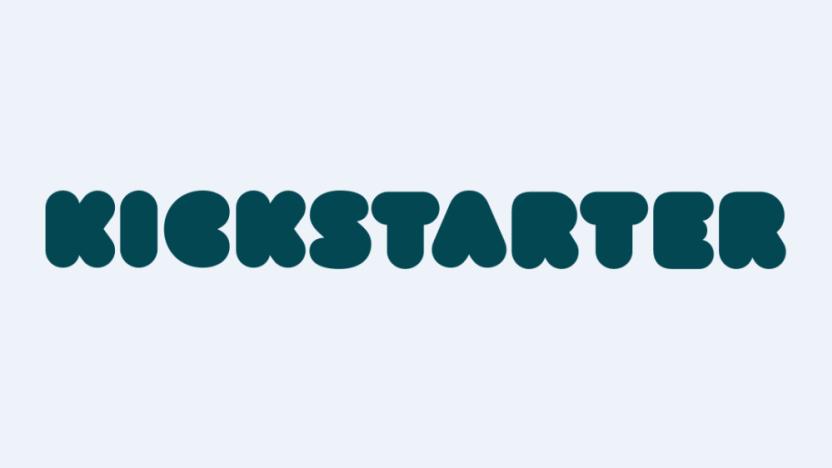knightfoundation
Latest

Snapchat is a popular source for news among college students
A number of studies have shown that people turn to social media for news, and of all of the social networks out there, Facebook consistently leads the pack in this regard. But a new study from the Knight Foundation has turned up a surprising finding -- that among college students, Snapchat is the second most popular social media pathway to news behind Facebook.

Study: Fake Twitter accounts from 2016 US election are still active
Fake news had proven to be a big issue around the 2016 presidential election in the US, with major social platforms falling victims to misinformation-spreading actors. Twitter, in particular, made repeated announcements that it was cracking down on the problem by improving its ability to recognize fake accounts and shut them down. According to a study, however, a large number of suspected accounts could still be at large, posting millions of tweets that link to fake news.

Kickstarter Patron aims to generate larger pledges for creators
Kickstarter is piloting a program that will match up companies, organizations and institutions with projects that need more substantial funding, TechCrunch reports. It's called Kickstarter Patrons and the nonprofit and for-profit groups selected to take part will be required to provide multiple pledges each worth $1,000 or more. Kickstarter will select the Patrons and direct them towards projects that align with their interests. "While the program is simple, the opportunity to help independent creators hit their funding goals while building relationships with major institutions that can continue to follow and support their career is profound," Kickstarter said.

Lawyers claim Trump can't block his critics on Twitter
While we withhold the right to moderate and maintain standards of discussion in our comments because they are a private space, does the President of the United States have a different standard to meet? The Knight First Amendment Institute at Columbia University believes so and sent Donald Trump a letter on behalf of Twitter users that have been blocked by his @realDonaldTrump account. The Wall Street Journal posted the text of the letter (PDF), which argues that, as President, operates as a "designated public forum" similar to a city council or school board meeting. As such, their argument goes, blocking users who have mocked or criticized the president violates their First Amendment rights. The letter did not directly state that further legal action could follow, but certainly implied it's possible. Bloomberg reports that White House spokesman Sean Spicer confirmed in a press conference that Trump's tweets should be considered official statements. So far there is no comment on the letter, and the users remain blocked.

eBay and LinkedIn founders back research into ethical AI
Some big names in the tech world aren't just fretting over the possibility of dangerous AI, they're taking steps to make sure it doesn't happen. LinkedIn founder Reid Hoffman and eBay founder Pierre Omidyar (through his Omidyar Network) are pouring a total of $20 million into a newly created Ethics and Governance of Artificial Intelligence Fund that will fuel research into the social considerations around AI. The organization wants to be sure that machines aren't just guided by "engineers and corporations" -- they should consider the input of everyone from social scientists through to economists and politicians.

Knight Foundation invests $60 million to protect digital free speech
It's getting tough to be a journalist these days with the First Amendment seemingly encroached from all sides. That's why the John S. and James L. Knight Foundation is granting Columbia University $60 million to create the Knight First Amendment Institute (FAI). The FAI will be tasked with preserving and expanding 1st Amendment protections. It will act as "a primary, durable and influential advocate of free expression in the digital age", according to a release from the Knight Foundation.

Public medical database aims to 'open-source' your body
Science needs your private data to speed up breakthroughs. Researchers find it increasingly hard to recruit participants. Apple did its part earlier this month with ResearchKit and made an attempt to get users involved in medical studies. But it soon ran into its share of limitations. Now Open Humans Network, a new public database, hopes to make medical research less opaque. The site finds a connection between people who want to share their medical data with researchers in need of that information. It relies on people who, given the choice, will feel encouraged to share their personal data on an open, research platform. Jason Bobe, project director, calls it "open-sourcing your body."

Libraries will lend out WiFi hotspots to foster online learning
For the less fortunate, a library may be the only reliable way to get online. But what do they do after hours, or when they can't make the trek? That's where a pair of Knight Foundation grants may prove vital. Both the Chicago Public Library and New York Public Library are starting up large-scale projects that lend WiFi hotspots to households with little to no internet access, giving them a chance to pursue internet education programs that would otherwise be off-limits. Chicago's approach will let those in six broadband-deprived neighborhoods borrow a hotspot for up to three weeks; in New York, the library will offer mobile routers for up to a year as part of existing learning initiatives.

Wikipedia expects to offer SMS-based access within months
Wikipedia has long been pushing for access to its communal knowledge among those who can't afford the latest technology, going so far as to strike deals with carriers to deliver free mobile web viewing. It's set to expand that reach to those for whom any advanced cellphone is out of the question. In part through the help of a Knight News Challenge grant and South Africa's Praekelt Foundation, the non-profit's Wikipedia Zero effort will offer its content through SMS and USSD messages in the next few months. Curious users will just have to send a text message to get an article in response, with no web required at all. It's a big step forward for democratizing online information for those who may not even have access to a smartphone, although we're curious as to how it will handle large articles; we can only imagine the volume of messages when trying to look up the known universe.





